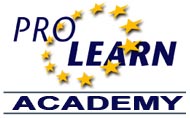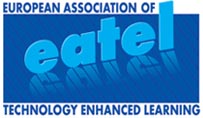[New Book]: Technology Enhanced Learning: Best Practices
Introducing the latest release from IGI Global: Technology Enhanced Learning: Best Practices
ISBN: 978-1-59904-600-6; 404 pp; April 2008 Published under the imprint IGI Publishing (formerly Idea Group Publishing)
http://www.igi-global.com/books/details.asp?id=7787
Edited by: Miltiadis D. Lytras, Athens University of Economics and Business, Greece, Dragan Gasevic, Simon Fraser University, Canada, Patricia Ordonez de Pablos, Universidad de Oviedo, Spain, and Weihong Huang, Kingston University, UK
DESCRIPTION
With the shift towards the knowledge society, the change of working conditions, and the high-speed evolution of information and communication technologies, peoples' knowledge and skills need continuous updating. Learning based on collaborative working, creativity, multidisciplinarity, adaptiveness, intercultural communication, and problem solving has taken on an important role in everyday life.
Technology Enhanced Learning: Best Practices goes beyond traditional discussion on technology enhanced learning to provide research and insights on increasing the efficiency of learning for individuals and groups, facilitating the transfer and sharing of knowledge in organizations, and understanding of the learning process by exploring links among human learning, cognition, and technologies. This book offers estimable, comprehensive research to researchers and practitioners in the field of technology enhanced learning in various disciplines, including education, sociology, information technology, workplace learning, entertainment, healthcare, tourism, and many others.
“The learning process is becoming pervasive, both for individuals and organizations, in formal education, in the professional context and as part of leisure activities. Learning should be accessible to every citizen, independent of age, education, social status and tailored to his/her individual needs.” (Miltiadis D. Lytras, University of Patras, Greece)
TABLE OF CONTENTS
Chapter I: Technology Enhanced Learning Tools Goran Shimic, University of Belgrade, Serbia
Chapter II: TEL practices in preschool and kindergarten education: integrating computer use and computer programming in off-computer activities Leonel Morgado, University of Trás-os-Montes e Alto Douro, Quinta de Prados, Portugal
Chapter III: The Blended Learning Classroom: an Online Teacher Training Program Karen García, USA Renata Suzuki, Japan
Chapter IV: Collaborative Online Learning and Accessibility Martin D Beer, Web & Multi-Agents Research Group, UK Paul Crowther, Web & Multi-Agents Research Group, UK Elizabeth Uruchurtu, Web & Multi-Agents Research Group, UK
Chapter V: The Importance of Training Needs Analysis in Authoring Technology Enhanced Learning for Companies Emma O’Brien, University of Limerick, Ireland Timothy Hall, University of Limerick, Ireland Kevin Johnson, University of Limerick, Ireland
Chapter VI: Metacognition for enhancing online learning Giuseppe Chiazzese, Italian National Research Council, Italy Antonella Chifari, Italian National Research Council, Italy Gianluca Merlo, Italian National Research Council, Italy Simona Ottaviano, Italian National Research Council, Italy Luciano Seta, Italian National Research Council, Italy
Chapter VII: A Research-Led Approach to Technology Enhanced Learning: Strategies, Programmes, Projects & Pedagogies in UK Higher Education Jacqueline A. Dempster, University of Warwick, UK
Chapter VIII: A Framework for Building Emotional-Motivational Agents as Intelligent Tutoring Entities Bogdan-Florin Marin, University Of Duisburg-Essen, Germany Axel Hunger, University Of Duisburg-Essen, Germany Chapter IX:Pedagogical Uses of Multimedia Annotators and Players Tetyana Sydorenko, Michigan State University, USA Tom Myers, CTO, N-topus Software, USA Alexander Nakhimovsky, Colgate University, USA
Chapter X: Knowledge Mining for Adaptive Multimedia Web-based Educational Platform Leyla Zhuhadar, University of Louisville,USA Olfa Nasraoui, University of Louisville, USA Robert Wyatt, Western Kentucky University, USA
Chapter XI: Towards More Intelligent Assessment Systems Sonja Radenkoviæ, University of Belgrade, Serbia Nenad Krdžavac, University of Belgrade, Serbia Vladan Devedžiæ, University of Belgrade, Serbia
Chapter XII: Can Person-Centered Technology Enhanced Learning Contribute to Develop Project Management Soft Skills in an Academic Context? Renate Motschnig-Pitrik, University of Vienna, Austria Michael Derntl, University of Vienna, Austria
Chapter XIII: Military Applications of Adaptive Training Technology James E. McCarthy, Sonalysts, Inc., USA
Chapter XIV: The Future of Technology Enhanced Active Learning – a Roadmap Claus Pahl, Dublin City University, Ireland Claire Kenny, Dublin City University, Ireland
For more information about Technology Enhanced Learning: Best Practices, you can view the title information sheet at http://www.igi-global.com/downloads/pdf/Lytras%20(Tech%20Enhanced).pdf. You can also view the first chapter of the publication at http://www.igi-global.com/downloads/excerpts/LytrasTechExc.pdf.
ABOUT THE EDITORS
Miltiadis D. Lytras is a Professor in the American College of Greece. His research focuses on Semantic Web, knowledge management, and e-learning, with more than 100 publications in these areas. He has co-edited/co-edits, 25 special issues in International Journals (e.g. IEEE Transaction on Knowledge and Data Engineering, IEEE Internet Computing, IEEE Transactions on Education, Computers in Human Behaviour, etc) and has authored/(co-)edited 12 books [e.g. Open Source for Knowledge and Learning management, Ubiquitous and Pervasive Knowledge Management, Intelligent Learning Infrastructures for Knowledge Intensive Organizations, Semantic Based Information systems] . He is the founder and officer of the Semantic Web and Information Systems Special Interest Group in the Association for Information Systems (http://www.sigsemis.org). He serves as the (co) editor-in-chief of 12 international journals [e.g. International Journal of Knowledge and Learning, International Journal of Technology Enhanced Learning, International Journal on Social and Humanistic Computing, International Journal on Semantic Web and Information Systems, International Journal on Digital Culture and Electronic Tourism, International Journal of Electronic Democracy, International Journal of Electronic Banking, International Journal of Electronic Trade] while he is associate editor or editorial board member in seven more.
Dragan Gasevic was born in 1976, in Han-Pijesak (near Sarajevo), Republic of Srpska, Bosnia and Herzegovina. He received the BS, MS, and PhD degrees in computer science and computer engineering from the University of Belgrade (Serbia, in 2000, 2002, and 2004 respectively). So far, he has authored/co-authored more than 150 research papers. He is an assistant professor at the School of Computing and Information Systems of Athabasca University, an adjunct professor at the School of Interactive Arts and Technology of Simon Fraser University, a member of the GOOD OLD AI research group, a member of the ACM, a member of the IEEE Computer Society, and a member of the IASTED Technical Committee on the Web, Internet, and Multimedia.
Patricia Ordóñez de Pablos is professor in the Department of Business Administration and Accountability, at the Faculty of Economics of The University of Oviedo (Spain). Her teaching and research interests focus on the areas of strategic management, knowledge management, intellectual capital measuring and reporting, organizational learning, and human resources management. She is executive editor of the International Journal of Learning and Intellectual and the International Journal of Strategic Change Management.
****************************************
To view the full contents of this publication, check for Technology Enhanced Learning: Best Practices in your institution’s library. If you library does not currently own this title, please recommend it to your librarian.
****************************************





